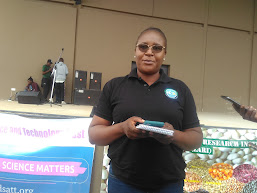STAKEHOLDERS REJECT PROPOSED PLANT BREEDERS RIGHTS DRAFT BILL

STAKEHOLDERS REJECT PROPOSED PLANT BREEDERS RIGHTS DRAFT BILL ...claiming the Bill serves the corporate interest and a threat to good governance,farmers rights,country's food sovereignty and nutrition. Picture for illustrations purposes By Alfonso Kasongo A collaborative network of concerned citizens, civil society groups, faith and farmer-based organisations, working together to strengthen the growing movement for agroecology and food sovereignty in Zambia through advocacy has rejected the proposed new Plant Breeders Rights (PBR) Bill,saying it is inappropriate for the country and must not be enacted. The Zambia Alliance for Agro-ecology and Biodiversity (ZAAB) observes that the proposed new seed law is a threat to country's food sovereignty ,good governance and promotion of farmers' rights. The Alliance says, once enacted in its current form, the Bill will provide conducive environment to increased multinational seed companies' influence and control of the seed



.jpeg)
